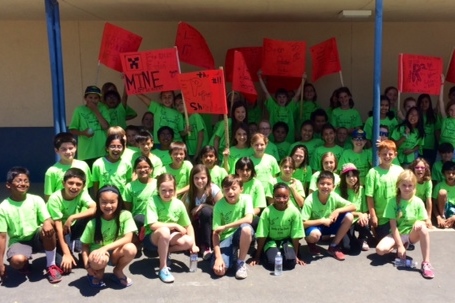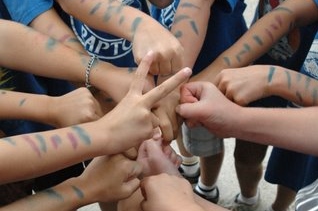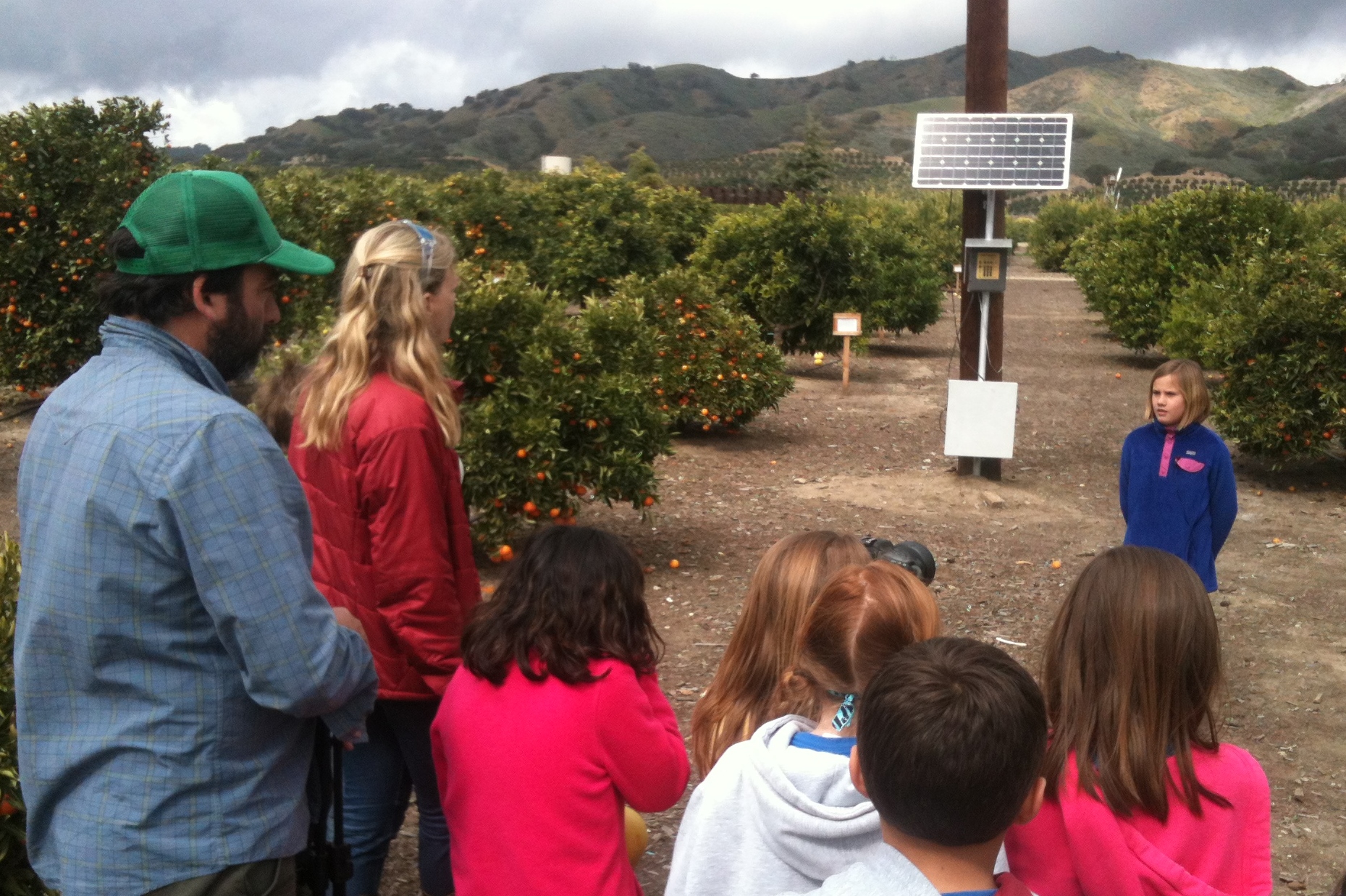


Learning to Take Care of Ourselves, Each Other, and the World
What is Global Citizenship? According to Oxfam and UNICEF, Global Citizens are people who understand how the world works and their role in taking care of it. They respect and value diversity, challenge injustice, and take responsibility for their actions. These are the people who speak up for others and step forward to help make the world a better place.
How does Mound help create Global Citizens? At Mound, all students learn the basic principles of being a global citizen in kid-friendly language. The staff reinforces the idea of students being "Upstanders" who stand up against injustice they see around them. In addition, the classroom culture emphasizes respecting different perspectives. Students learn to listen to each other during class discussions and to always be respectful, even when they disagree. Finally, Mound students participate in a variety of service learning projects, from visiting local retirement communities in kindergarten to raising money and awareness for global issues in the upper grades.
How does science support Global Citizenship? As Mound students learn about how the natural world works, they will also learn their role in taking care of earth's systems. This process begins at the smallest level in kindergarten, as students learn about earthworms, what they need to survive, and how they affect our soil. The kindergartners then learn to take care of these creatures when they see them on sidewalks after it rains. Second graders study erosion and learn that they can plant vegetation on local hillsides to prevent mudslides. Fifth graders study a sustainable farming system called aquaponics that could be used in countries with perpetual drought. These are just some examples of Mound's exciting science and engineering projects that promote the principles of global citizenship.